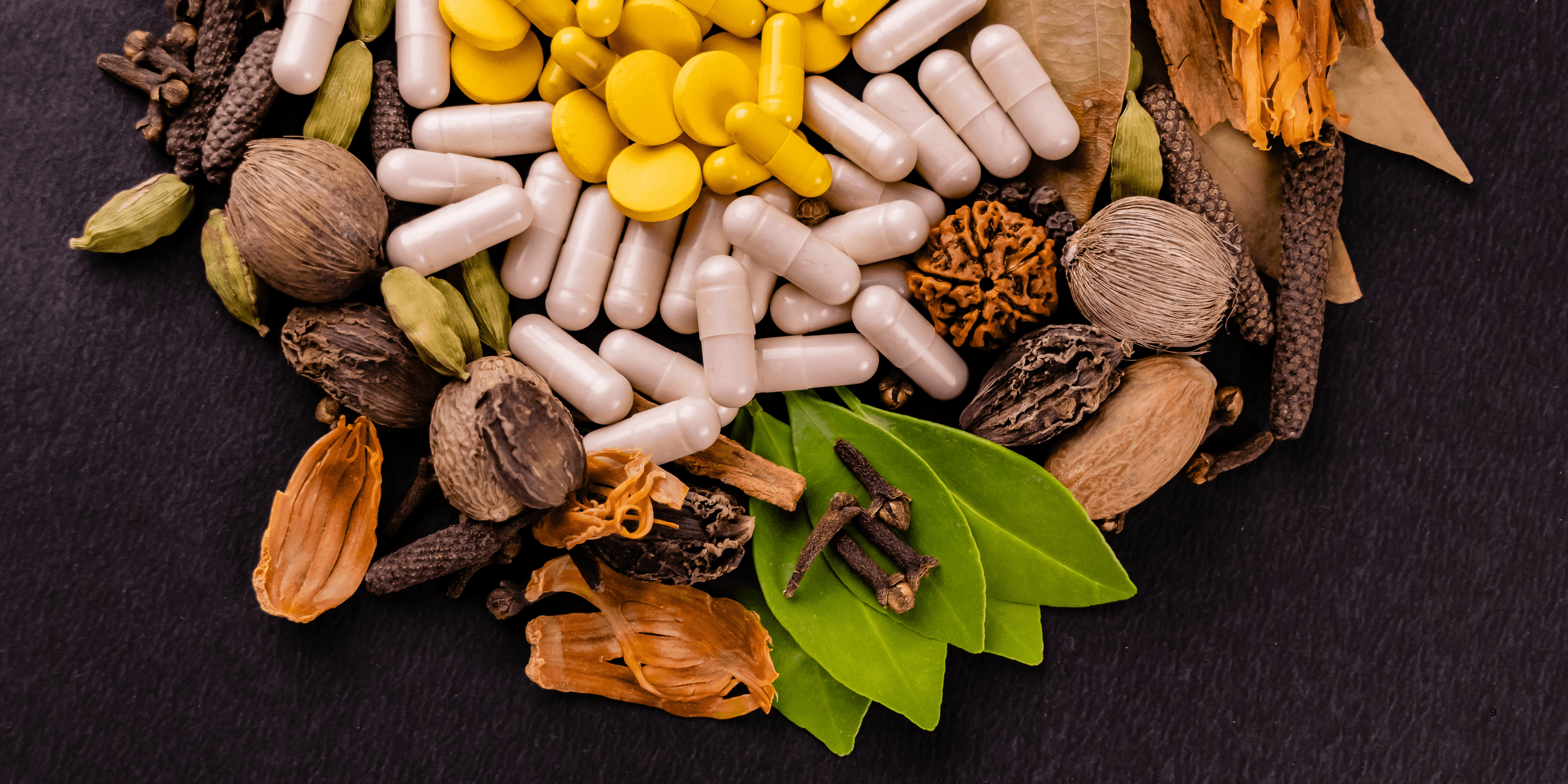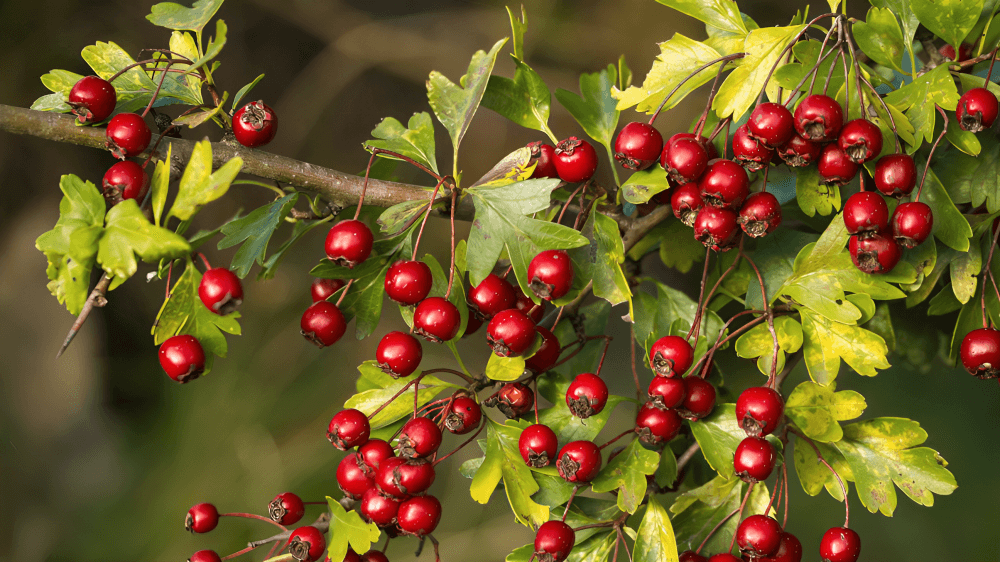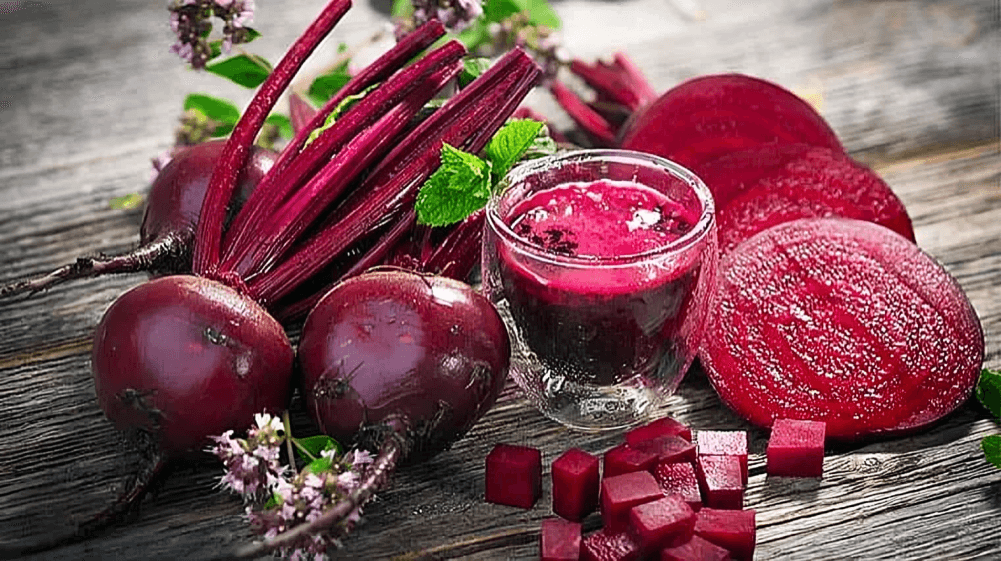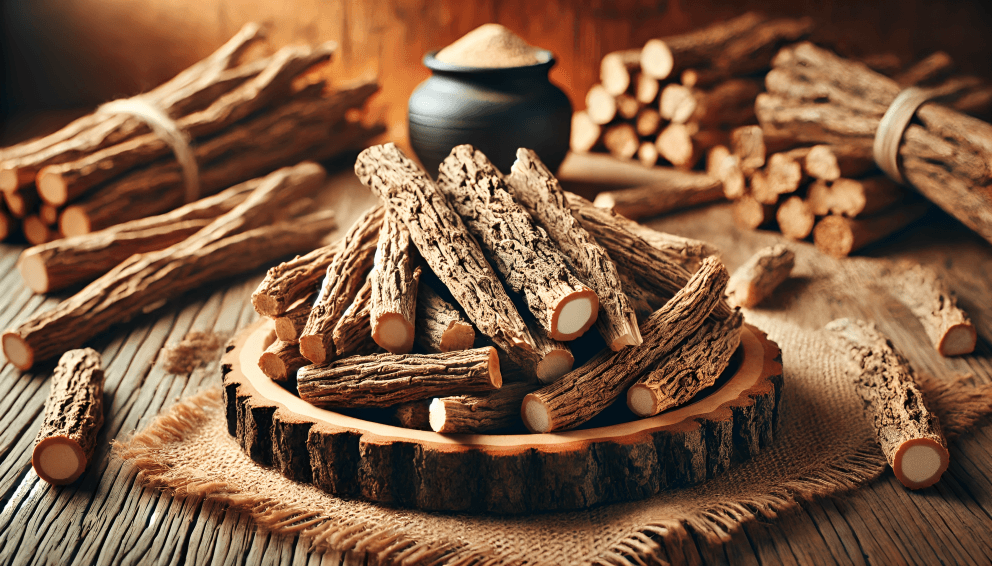
“
Maintaining cardiovascular health is crucial for overall well-being, and many turn to supplements and herbs for natural support. Supplements and herbs for cardiovascular health offer promising benefits by improving blood flow, reducing inflammation, and supporting heart function.1
1
”
Omega-3 fatty acids, commonly found in fish oil supplements, significantly reduce triglyceride levels and lower the risk of heart disease by promoting healthier blood vessels. 1
Garlic supplements have been shown to help lower blood pressure by relaxing blood vessels, contributing to better overall circulation and reduced cardiovascular strain. 2

Hawthorn berry is traditionally used to strengthen the heart muscle, improve blood flow, and manage symptoms of mild heart failure through its antioxidant and vasodilating properties.
Coenzyme Q10 plays a critical role in cellular energy production and may improve heart function, especially in people with heart failure or those taking statin medications. 3
Magnesium supplements assist in regulating heartbeat and muscle function, often helping to prevent arrhythmias and contributing to better blood pressure control. 4
Turmeric contains curcumin, a potent anti-inflammatory compound that helps reduce arterial inflammation, a key factor in preventing atherosclerosis and cardiovascular disease. 5
Green tea extract is rich in antioxidants that improve cholesterol levels by increasing HDL (good cholesterol) and decreasing LDL (bad cholesterol). 6
Fiber supplements, particularly soluble fiber, help lower cholesterol by binding to it in the digestive system, preventing absorption and supporting heart health. 7
Vitamin D deficiency is linked to increased cardiovascular risk; supplementing can improve blood pressure and reduce inflammation in some individuals. 8

Beetroot supplements provide dietary nitrates that convert to nitric oxide, enhancing blood vessel dilation and improving blood flow, especially during exercise.
L-arginine is an amino acid that helps produce nitric oxide, aiding in blood vessel relaxation and potentially reducing symptoms of chest pain related to heart conditions. 9
Resveratrol, found in red wine and grapes, is believed to protect the heart by preventing blood clots and reducing inflammation through its antioxidant effects. 10
Ginkgo biloba may improve circulation by dilating blood vessels and reducing blood viscosity, potentially benefiting those with peripheral artery disease. 11
Fenugreek seeds contain compounds that can lower cholesterol and triglycerides, contributing to healthier lipid levels and reduced cardiovascular risk. 12
Psyllium husk fiber supplements promote heart health by lowering cholesterol and improving blood sugar control, benefiting cardiovascular risk factors. 13

Licorice root, while used traditionally for heart health, should be consumed carefully, as it can raise blood pressure in large amounts.
Dr. Dean Ornish’s research supports the use of lifestyle changes combined with supplements to reverse early heart disease through comprehensive natural approaches. 14
Magnesium deficiency can increase heart disease risk by contributing to hypertension and irregular heartbeats, highlighting the importance of balanced mineral intake. 15
Vitamin K2 plays a role in preventing arterial calcification, helping maintain flexible and healthy blood vessels over time. 16
The ancient philosopher Paracelsus emphasized that “the dose makes the poison,” reminding us that proper supplementation must balance efficacy and safety to truly benefit heart health. 17


